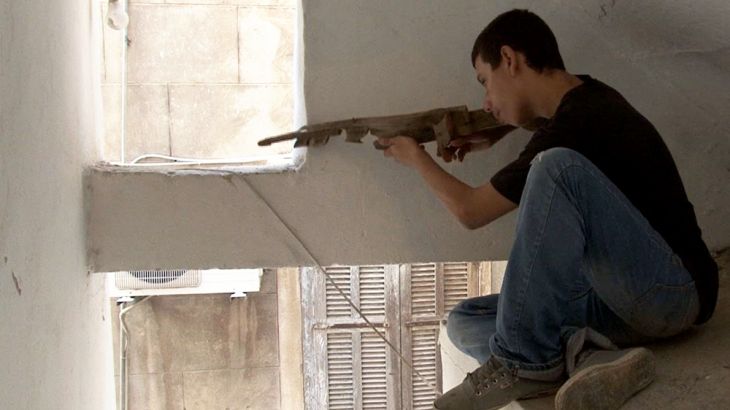
The Wooden Rifle
Five Lebanese in Beirut reflect on how their lives have been affected by their country’s civil war in the 1970s and 80s.
Filmmaker: Alfouz Tanjour
Lebanon’s civil war lasted from 1975 to 1990, and the capital of Beirut bore the brunt of the fighting and destruction.
Keep reading
list of 4 itemsRwanda genocide: ‘Frozen faces still haunt’ photojournalist, 30 years on
Underground tunnels found in Israel from Jewish revolt against Romans
Lost in Orientalism: Arab Christians and the war in Gaza
My parents named me Marwan because they wanted a non-sectarian name. Normally this doesn't matter but in this country it does.
More than 40 years after the start of the war, we meet five Lebanese in Beirut, most of whom lived in the capital during the conflict but were too young to be actively involved in it.
Even so, they have powerful memories of the events, their parents’ stories and an enduring sense of the conflict’s political, economic and cultural legacy.
We meet Kinda Hasan, a musician; Marwan Tahtah, a photojournalist; and Jihad Samhat who arrived in Beirut from California when he was 13, and has since founded Radio Beirut. All three were too young to be caught up in the fighting.
Samaan Khawam is an artist who came to Beirut from Syria as a child in 1988. He became a sniper towards the end of the war, almost “by chance”, he says.
Eli Abou Samra is a high school student who was born after the war ended, but he grapples with the way the conflict has left an indelible mark on him and Lebanese society today.
“The Wooden Rifle” was the recipient of the Public Liberties & Human Rights Award at the 2013 Al Jazeera Documentary Festival.